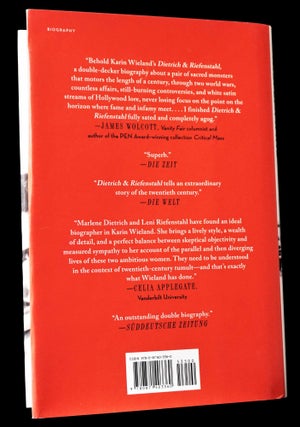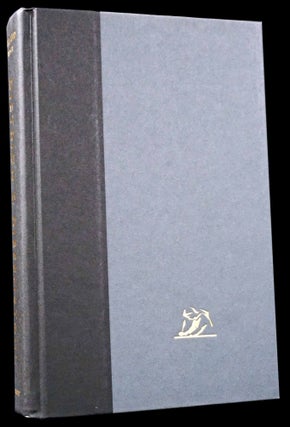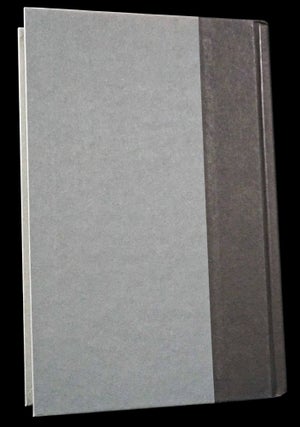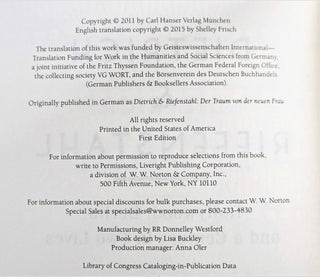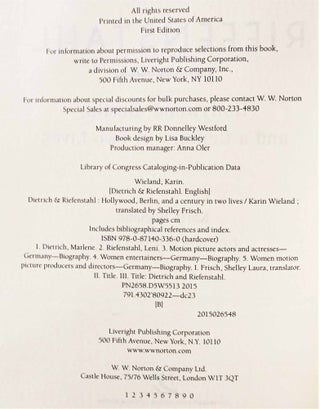Dietrich & Riefenstahl: Hollywood, Berlin, and a Century in Two Lives
New York, NY: W.W. Norton, 2015. First Edition. Hardcover. “Born at the dawn of the twentieth century, Leni Riefenstahl and Marlene Dietrich both came of age in Weimar Berlin. Glamour and decadence thrived beside abject poverty, and the German capital’s outpouring of literature, fashion, and film marked it as the most vital European metropolis. As young women of this era, Dietrich and Riefenstahl lived so close to each other that Riefenstahl could see into Dietrich’s apartment from the roof of her building. Both women seized upon the revolutionary energy of the 1920s, seeking careers on the stage and in film. In 1929, filmmakers were casting what would become the iconic role of Lola-Lola (who made 'Falling in Love Again' a sensation) in the groundbreaking sound film 'The Blue Angel.' Riefenstahl--whose work in her mountain films had already made her a national emblem for the athletic rigor and spirited independence of the New Woman--hoped for the part but didn't get it. Only a few years later she became the official filmmaker of the Third Reich. Dietrich, however, won the role, and the adoration of millions when she moved to Hollywood and redefined the vixen for the new era. / Riefenstahl's own iconography is no less indelible. With her work on two of the most notorious--if artistically sophisticated--propaganda films of all time--'Triumph of the Will' and 'Olympia'--Riefenstahl was a progenitor of fascist symbolism. After the war she proclaimed her ignorance of Hitler's motives, but she could never completely distance herself from her Nazi collaboration. / Both women were 'prodigies of will, discipline, endurance, self-reinvention, and exaltation of the body in all its muscular, androgynous, pose-striking pagan glory." (from Flap Copy) As the flap copy quoted at length above attests to, the book--first published in the original German back in 2011--is "magisterial in scope" indeed. Operating through a lens which prioritizes the uniquely different, albeit profoundly interrelated--from both a professional and pop-cultural perspective. For those deeply fascinated by the fractured geopolitics of the WWII era (and the wide scope impacts the attendant near boundless depravity which marks it), this book is a must-read. Hardcover in unclipped dust jacket: First Edition, as stated on copyright page; first printing, as indicated by number sequence thereon. From the collection of George V. Buehler (1933-2020), who was a prominent real estate developer & collector in Massachusetts & Arizona. We found & have retained, between blank rear endpaper & paste-down, printed-out documentation relating to Buehler's purchase of this item during 2011, both folded and in fine condition. Book in exceptionally very fine condition, virtually as issued. Dust-jacket in very fine condition, also virtually as new, with only slightest shelf-wear to fine-edges, else pristine. An extra handling fee will be added for shipping due to the weight of this item. Very Fine / Very Fine. [Item #4966]
Price: $30.00


![[Item #4966] Dietrich & Riefenstahl: Hollywood, Berlin, and a Century in Two Lives. Karen Wieland.](https://thirdmindbooks.cdn.bibliopolis.com/pictures/4966.jpg?width=768&height=1000&fit=bounds&auto=webp&v=1656449401)
